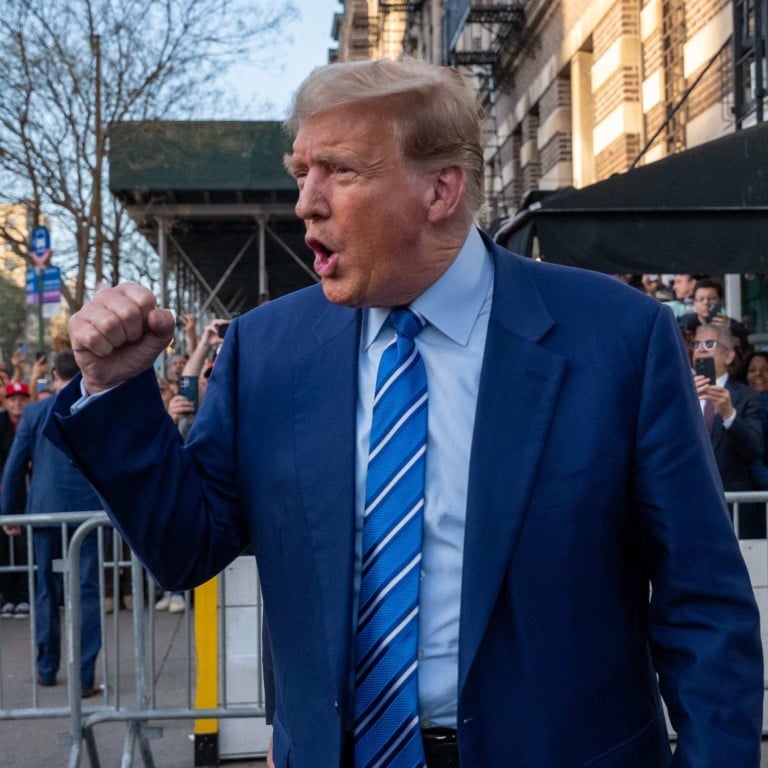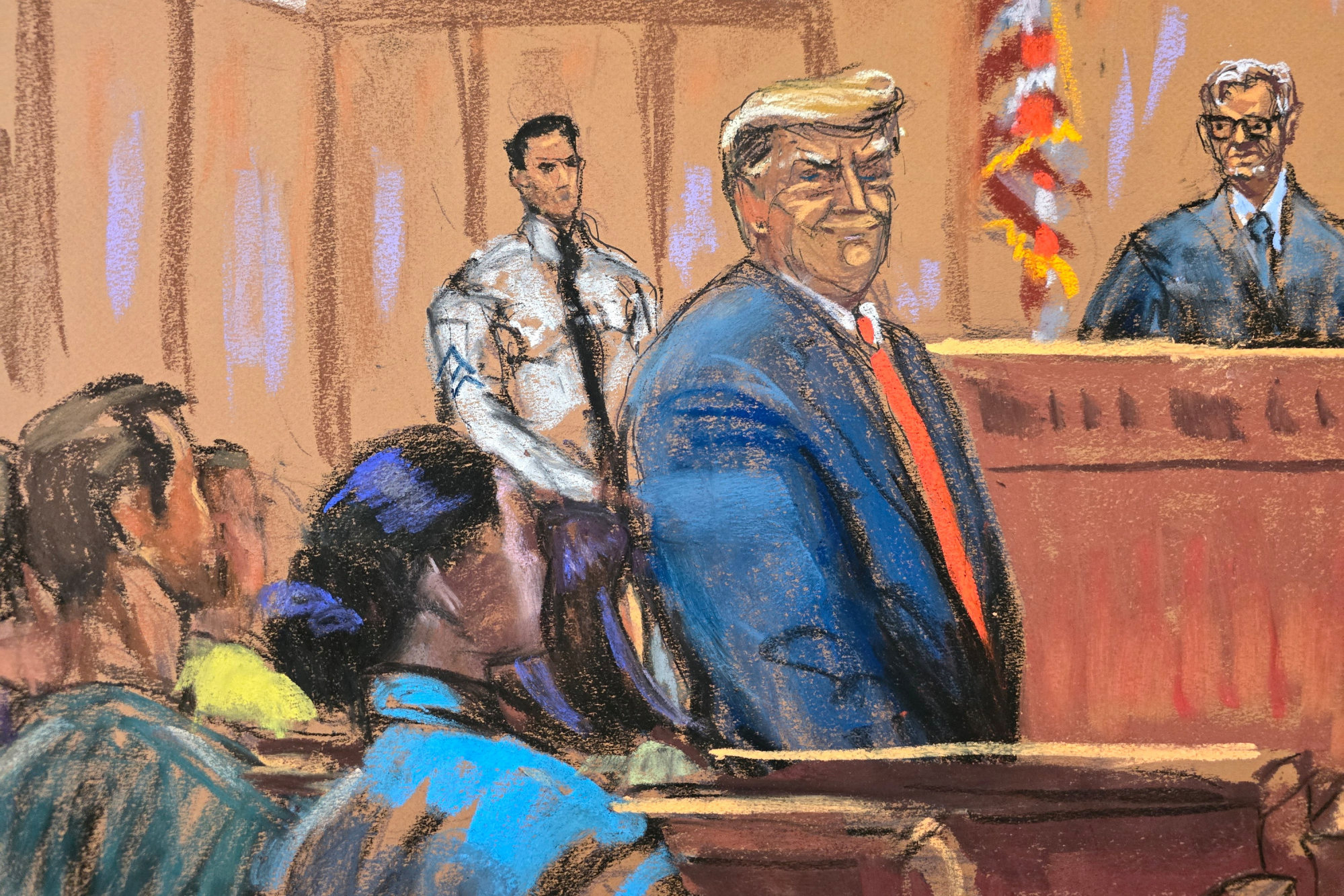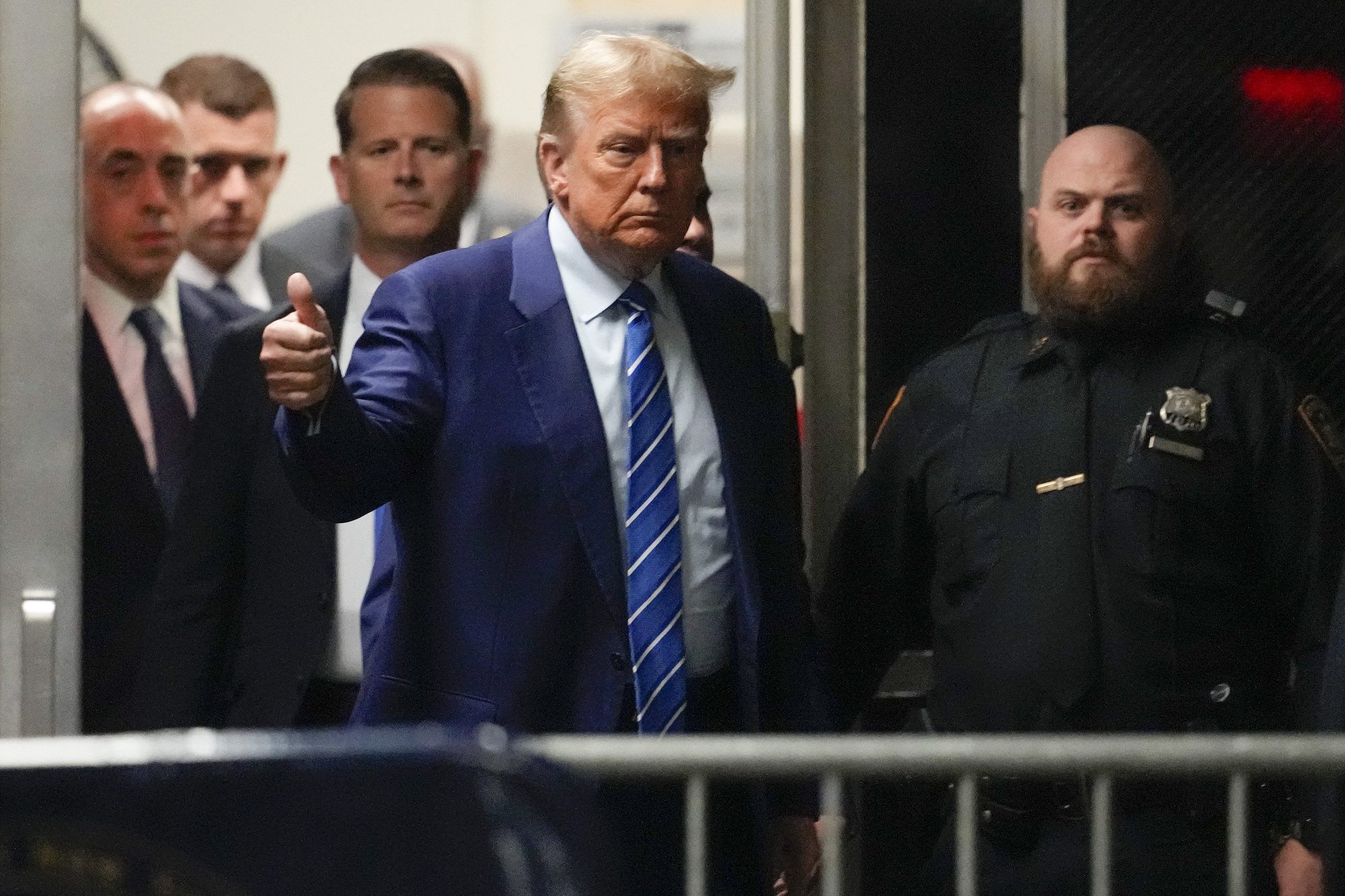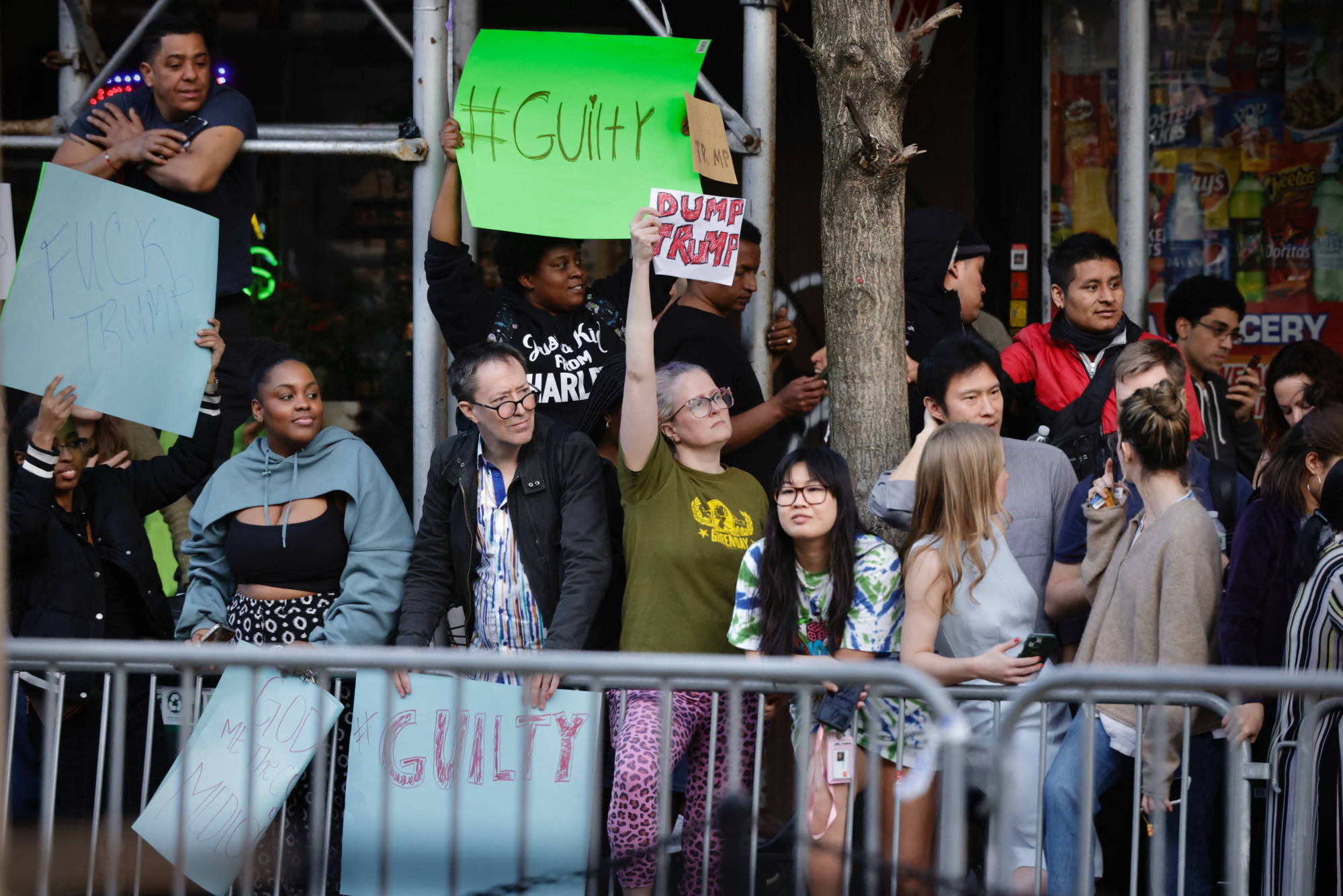
Trump hush money trial: 8 million New Yorkers, but only 12 will judge him
- Jury selection begins in Donald Trump’s hush money trial, the first criminal trial against a former US president
- Lawyers on both sides sifted through scores of potential panellists in a search for jurors who can be unbiased
One said he’d read Donald Trump’s books. But another took a look at the glowering defendant in the Manhattan courtroom and excused herself, saying, “I couldn’t”.
Eight million people live in New York but just 12 are being picked to judge the most controversial man in the country – and it’s not a job everyone wants.
Trump grew up in New York, made his name there, and for decades has been part of the city’s brash landscape. And of course he’s also been president and is running again.
It’s hard in the Big Apple not to have an opinion on the Republican – or on the multiple criminal charges hanging over him.

So it will be a massive challenge for the jury spending the coming weeks judging Trump in his Manhattan hush money fraud trial.
Lawyers on both sides this week sifted through scores of potential panellists in a search for New Yorkers who can be unbiased – and physically able to attend the legal marathon.
Hush money trial judge warns Trump over intimidation, as first 7 jurors picked
On Monday, more than half of the first batch of 96 candidates were excused after signalling they could not be impartial.
Then on Tuesday, prospective jurors were grilled on their media consumption, political donations and education. Seven jurors were selected.
Five more jurors are needed, as well as six alternates.
Among the three women and four men chosen to serve were an oncology nurse who lives on the Upper East Side; a corporate lawyer from Oregon who lives in Chelsea; an English teacher from Harlem who said she respected that Trump “speaks his mind”.
There was an IT worker originally from Puerto Rico who said he found Trump’s ability to walk into a room and set everyone off was “fascinating”, and a software engineer and recent college graduate who lives in Chelsea and said she could be impartial.
One dismissed candidate, Kara McGee, said her fellow contenders were “really kind of trying to put their own feelings aside and be impartial”.

She asked to be excused because her job in cybersecurity posed a scheduling conflict.
But, “there was a sense of like, ‘Oh, we need to be here and do our civic duty’,” the 29-year-old told Agence France-Presse.
Jurors who are selected will granted anonymity to protect them from harassment. McGee was known inside the courtroom only as Juror B377.
How Trump will seek to turn his hush money trial into political gold
The final group will be asked to decide whether the 77-year-old White House candidate is guilty of 34 felonies in falsifying business records in a scheme to cover up reports on the eve of his 2016 election victory that he had an extramarital affair with a porn star.
That prospect left some prospective jurors in a hurry to get out.
“I just couldn’t do it,” one woman was heard confessing in the hallway as she left.
“It’s probably going to be tough for me to be impartial,” a man with thinning hair and a beard told the court Tuesday morning, citing the “unconscious bias” he might pick up working as an accountant, where he said many of his colleagues “slant Republican”.

He too was dismissed.
One older man, sporting greying hair and dark-rimmed glasses, said he had read several of Trump’s ghostwritten bestsellers, including The Art of the Deal and How to Get Rich.
But he reckoned he could manage to stay impartial.
“I feel that no one’s above the law,” he said, adding that he would do his best to avoid discussing the case with his wife.
A teacher from Harlem – a black woman in her late 20s – also said she would put civic duty above personal feelings.
“There was a divide in the country (during the last election), and I can’t ignore that,” she said. “However, I never equated that to one individual.”
In an age of smartphones and 24 hour TV news, few can say they have stayed free of the Trump coverage. But one juror could: she told the lawyers she’d been away in February and March by a lake with no Wi-fi.
“I don’t really know what exactly this case is about,” she said.
Trump, who has pleaded not guilty to all of the charges, faces a maximum of four years behind bars if convicted. Legal observers say fines would be more likely.
According to the court, the trial could last up to eight weeks once the jury is selected.
Trump’s lawyers had tried until the eleventh hour to avert, postpone or at least delay the trial. Even after a conviction and even with a prison sentence in this case, Trump would still be able to run in the presidential election.
He is facing three other criminal trials as well several civil lawsuits.
The Republican is set for an election rematch with incumbent President Joe Biden, a Democrat, in November.
The trial is due to continue on Thursday.
Additional reporting by Associated Press and dpa

.png?itok=arIb17P0)